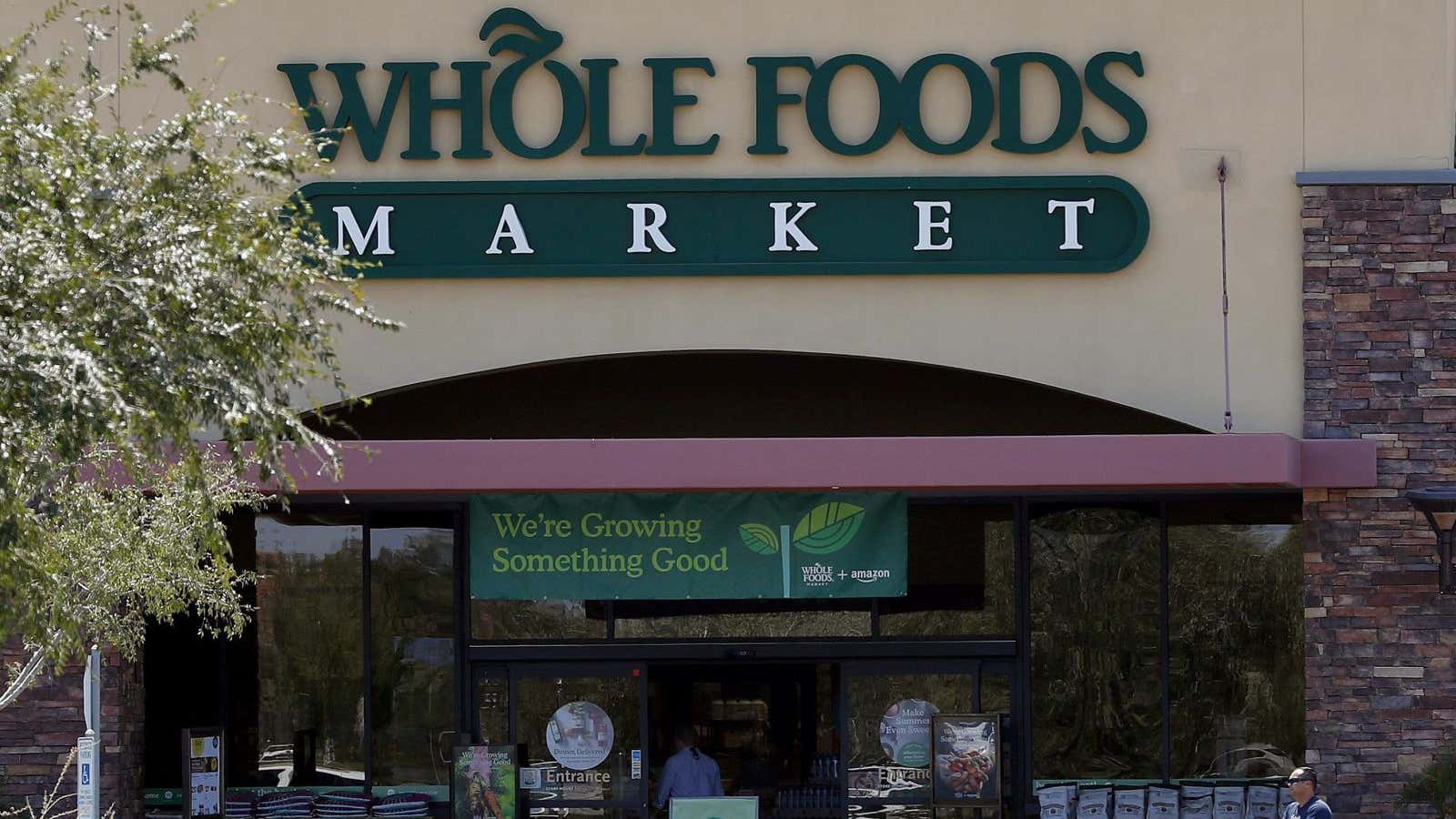Grocery stores had been keeping a wary eye on Amazon. When word came in June that the e-commerce giant was buying Whole Foods for $13.7 billion, big grocery chains scrambled for a response. They found one in startups like Instacart.
The San Francisco-based delivery service has long positioned itself as the “de facto ally of American grocers against Amazon” as Alison Griswold wrote for Quartz. By hiring shoppers to pick out and deliver orders from existing supermarkets, the $3.4-billion startup founded in 2012 gives on-demand service to decidedly low-tech grocers.
That was a much tougher sell before Whole Foods was bought, says Instacart CEO Apoorva Mehta. ”The day of the Amazon announcement, my phone was ringing of the hook,” he tells Quartz. Instead of pilots and multi-year roll-outs, Mehta says retailers were calling to launch immediately in as many stores as possible. Everyone in the space needs a delivery solution,” he says.
The “Amazon Effect” is accelerating the move to online shopping across retail. It will likely claim many victims that fail to compete. But among the beneficiaries are grocery-delivery startups like Instacart and Shipt, which Target has agreed to purchase for $550 million.
Shipt says it has seen orders jump 60% since June and is expanding from 30 to 70 markets by the end of the year. Instacart is also on a tear. It says its partnerships have soared from 30 to 165 retailers in the past year. Many have come since Amazon’s Whole Foods announcement this summer.
Instacart now serves 52% of all US households (66 million) through retailers such as Food Lion, Publix, Target, Costco, Wegmans, Aldi and Whole Foods. By 2018, the company says it aims to reach 80%.
Instacart still has a tricky path ahead. Its exclusive delivery deal with Whole Foods may not last, given the competing AmazonFresh service. (Amazon now owns a small stake in Instacart, estimated at $36 million, from its Whole Foods acquisition.) Meanwhile, Instacart is racing to make itself look more like Amazon Prime. Instacart Express, which waives delivery fees, accounts for more than 50% all orders, says Mehta, and it’s growing.
